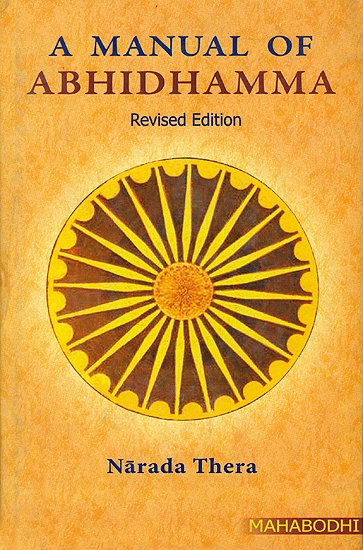Abhidhamma in Daily Life (by Ashin Janakabhivamsa)
by Ashin Janakabhivamsa | 66,666 words
English translation of "Abhidhamma in Daily Life" by Professor Ko Lay. Revised by Sayadaw U Silananda, International Theravada Buddhist Missionary University, Yangon, 1999...
Factor 2 - Vedana (feeling, sensation)
The next cetasikas is vedana, which means feeling or sensation. We already know that there are six sense objects such as ruparammana (sight), saddarammana (sound), etc. which give rise to feelings. These six external sense-objects can be subdivided into three classes:
- Ittharammana (the pleasant)
- Anittharammana (the unpleasant)
- Mijjhattarammana (the neutral)
Sense objects that are desirable and that appeal to people are termed ittharammana (pleasant sensations). Beautiful appearance, sweet sound, enticing smell, relishing taste, sensual touch, good names, excellent buildings are all ittharammana.
What most people regard as undesirable as bad, ugly, distasteful or unattractive feelings or sensations are classified as anittharammana. Ugly appearance, horrid sound, oppressive smell, insipid taste, unwelcome touch, bad names and squalid buildings are all anttharammana. There also are neutral external objects, which are neither good nor bad. An appearance which is neither beautiful nor ugly, for instance, is mijjhattarammana.
Vedana is of five kinds namely:
- Sukha (pleasure)
- Dukkha (suffering)
- Somanassa (mental well-being)
- Domanassa (mental suffering)
- Upekkha (equanimity)
When one enjoys the agreeable sensations of ittharammana one feels sukha vedana (pleasant feeling). This feeling causes somanassa vedana (gladness of mind). The feeling of somanassa vedana becomes prominent while enjoying sensual pleasures such as ruparammana, saddharammana, and so on. Somanassa vedana also becomes prominent on seeing objects of devotional reverence such as the Buddha and the Dhamma, etc.
Coming across wretched objects causes dukkha vedana (physical suffering) or domanassa vedana (mental pain). The various characteristics of dukkha vedana in association with dosa cetasika, namely soka (sorrow), parideva (anguish), dukkha (suffering), domanassa (mental pain) and upayasa (anxiety) have already been mentioned in precious chapters. Physical pleasure and suffering arising from bodily contact are termed sukha and dukkha, respectively. Pleasure and suffering of mind in connection with eye, ear, nose, tongue and consciousness are termed somanassa and domanassa, respectively.
Majjhattarammana consists of very subtle neutral feelings. This is known as upekkha vedana. This type of feeling is difficult to discern yet it is very prevalent and common in daily life. We came across such feeling even while standing, sitting, walking, seeing or hearing. Even then one does not know upekkha vedana which is neither good nor bad arising. It is very subtle indeed.
All vedana can associate with kusala arammana (wholesome objects) as well as akusala arammana (unwholesome objects). The enjoyment of sensual pleasure as well as the bliss arising from appreciation of the Dhamma are therefore categorised as veDana.
